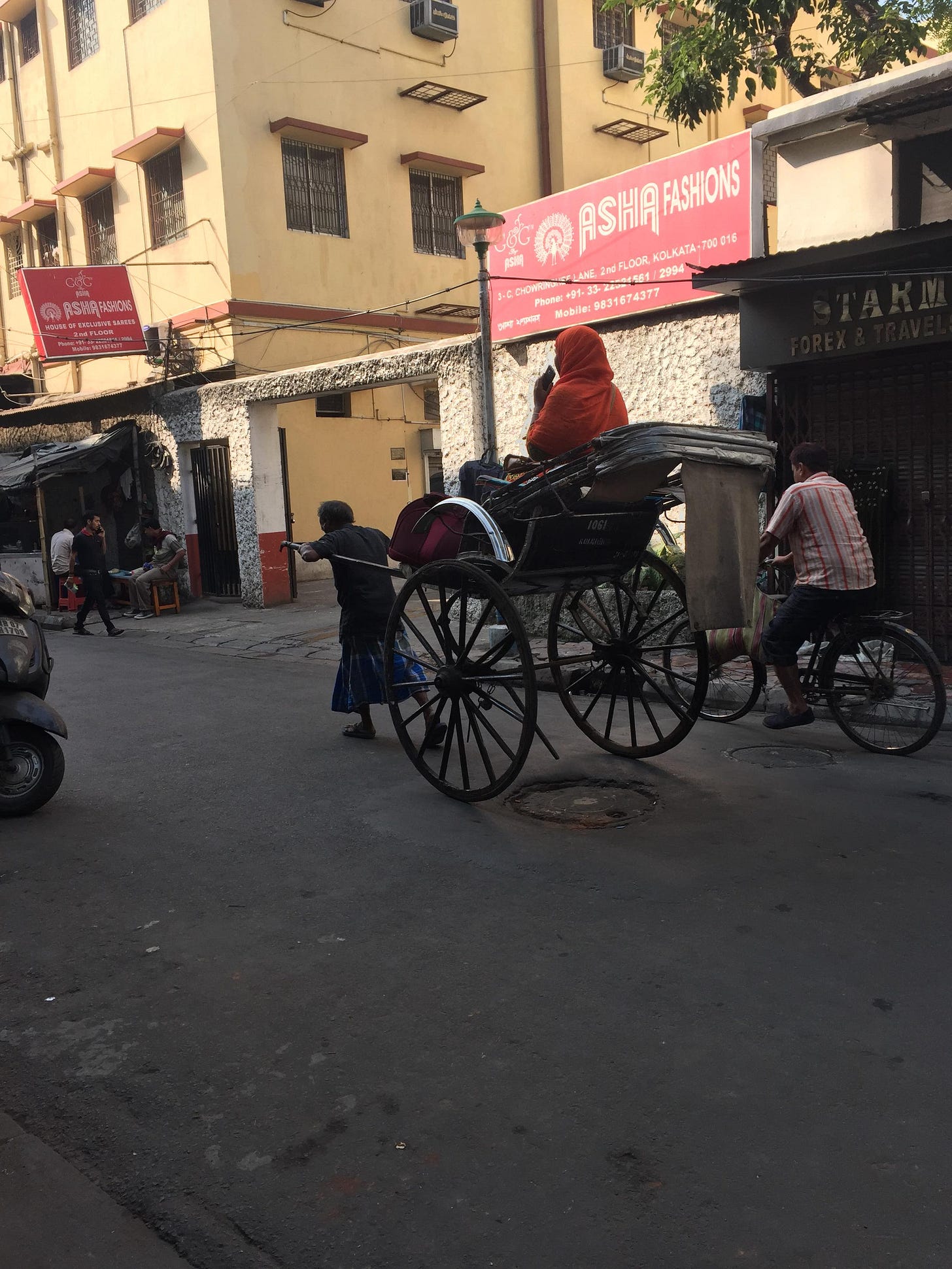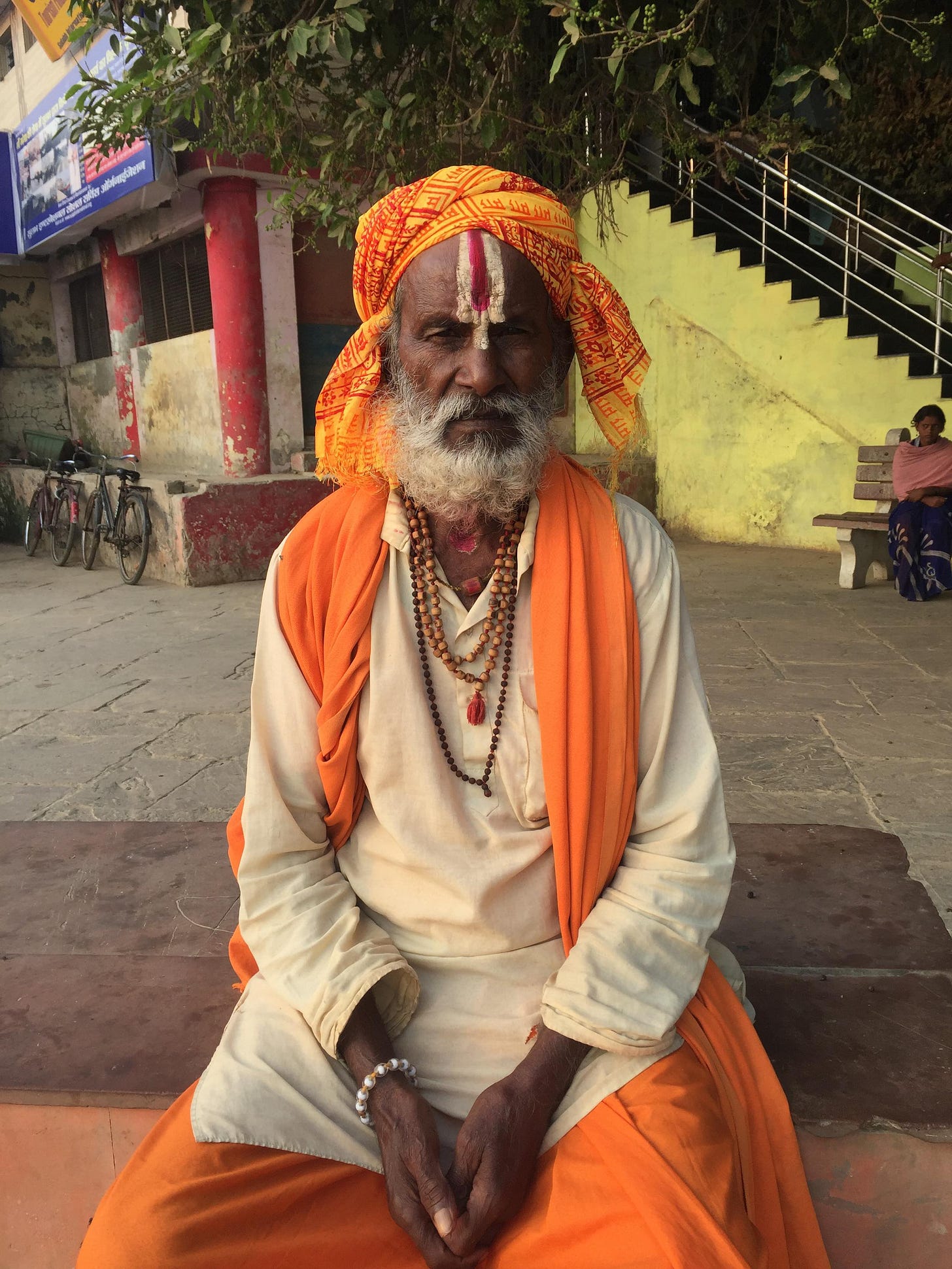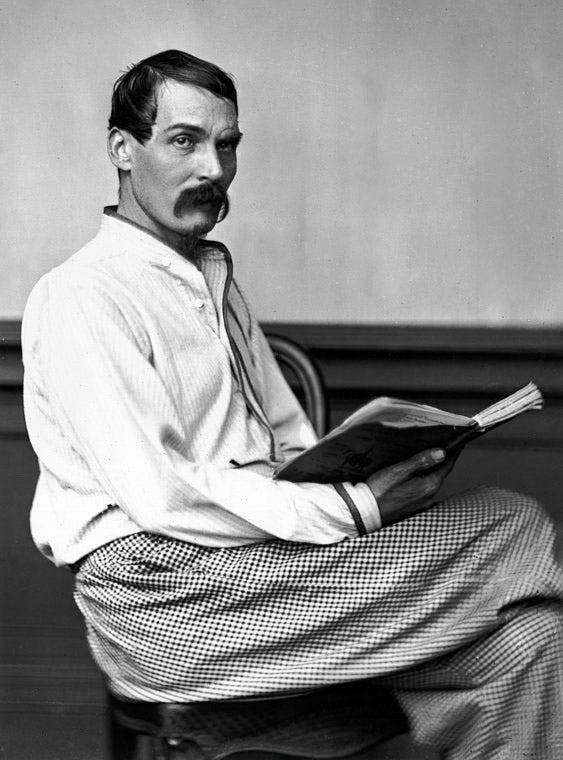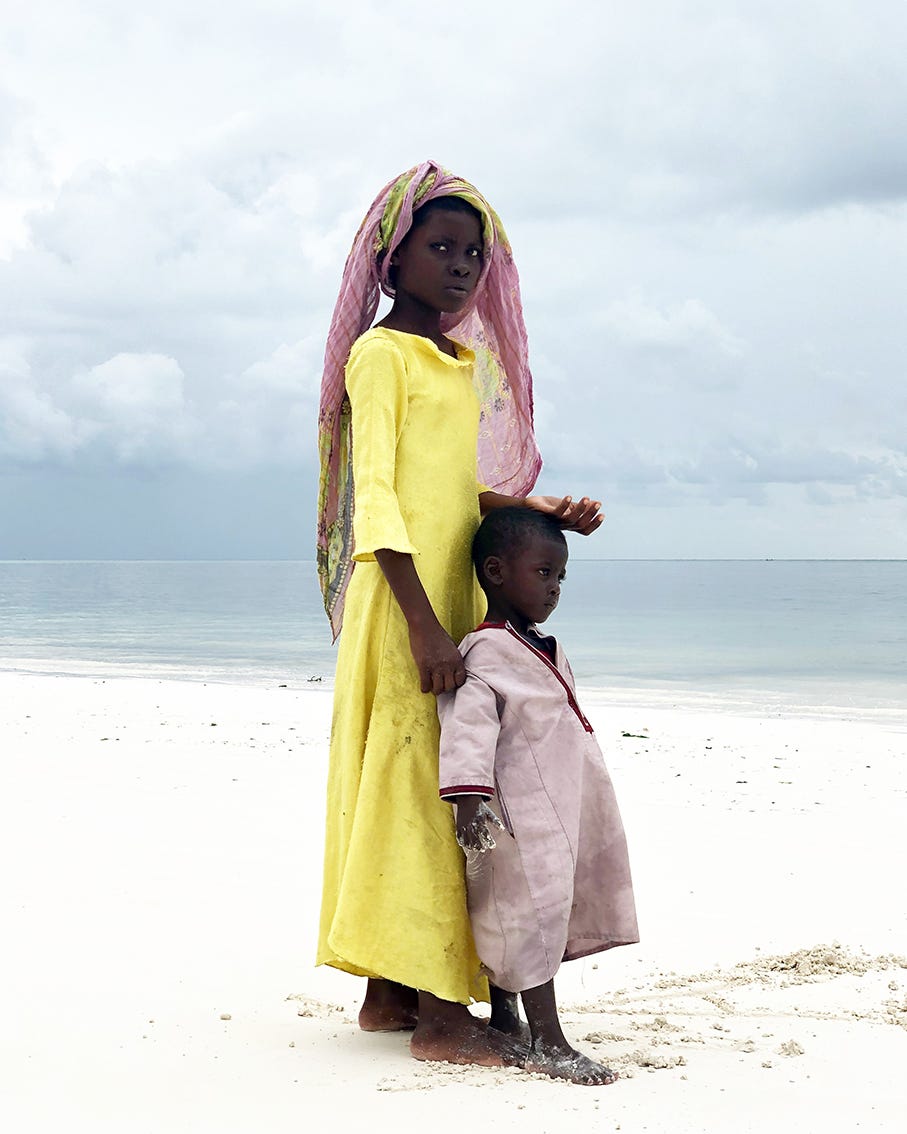⌾Curio #18 - Richard Francis Burton, Big Sister & Husky
Namaste 🙏
I’m now back in NY after a memorable couple of weeks. It was my second time visiting India but I still feel I’ve barely been able to scratch its surface. It’s more of a continent than a country — so many people, so many languages, so many cuisines, so many cultures and so much history. It would take at least six months to do justice to it.
The only change from my original travel plans was that I tacked on a couple of days in the beautiful little Rajasthani town of Pushkar (see below) between Jaipur and flying out of Delhi.

Pushkar is one of the holiest places in Hinduism. The whole city is strictly vegetarian
My trip included:
Eating some of the best food of my life. For those, like me, who worship at the altar of the butter chicken, the place is a culinary paradise. (Special mention to Sandoz, Chor Bizarre and Karim’s in Delhi, Blue Lassi in Varanasi and Niro’s in Jaipur)
Breathing the most polluted air in the world. (On the upside, the choking smog created some cracking pink and lavender sunsets)
Seeing my first corpse. (Intense)
Seeing my first corpse being burned. (Super intense)
Traveling by the following modes of transport: plane, train, car, walking (lots of this), camel, elephant, boat, tuk-tuk, bicycle rickshaw and human rickshaw. (Yes, in Kolkata, these still exist)

Straight out of the Middle Ages
Successfully logging offline for seventeen days. This meant my entire focus was on my immediate surroundings and the books I was reading. (I became almost as relaxed as this guy)

He spends every day meditating in front of the River Ganges
Hanging out with a crew of elite Indian mud wrestlers. (More on this at a later date)
Getting swindled by a sophisticated and well-oiled scam. (Don’t ask)
Navigating the Delhi metro at peak hour. (It makes the 8:30 am L train from Brooklyn to Manhattan seem low key and spacious)
There’s no doubt that India can, at times, be a frustrating and exhausting country to visit. But I also find it endlessly fascinating. It’s a dizzying assault of color, noise, taste, smell and, above all, personality. I can’t wait to go back.
If, like these shop owners in Kolkata, you’re enjoying Curio, then feel free to forward it to friends or colleagues and they can sign up below.

Have a great weekend!
Oli
Sir Richard Francis Burton & the Joy of Travel
If one person were to embody the spirit of this newsletter, it would be the nineteenth-century British explorer Sir Richard Francis Burton. His unmatched curiosity about the world led him to live one of history’s most remarkable lives. Byron Farwell in his 1963 biography of Burton writes:
“No man can be all things at once, no matter how hard he tries, but no man tried harder than Richard Francis Burton. He made significant contributions to the world in the field of literature and geography. He was also a poet, traveler, soldier, diplomat, inventor, author, explorer, archaeologist, linguist, anthropologist, student of religions and more. Above all, however, Burton was an adventurer, in the purest sense of that word.”

“Burton was one of those rare personalities who was both a man of action and a scholar”, writes his biographer Byron Farwell
Early Life
Born in 1821 in the seaside English town of Torquay to an upper-class family, Burton lived most of his early childhood in France and Italy before going to boarding school in England. He went to Oxford for university but found the atmosphere stultifying and his formal education unfulfilling. Instead, Burton spent his time drinking, gambling, chasing girls, boxing, fencing and teaching himself Arabic (which at that time wasn’t taught at Oxford). Frustrated, he dropped out after two years and decided to join the army of the British East India Company. His life of adventure had begun.
The Ultimate Adventurer
The following is an abridged list of some of Burton’s achievements and highlights.
He was one of the first non-Muslims to travel to the holy Islamic cities of Mecca and Medina and come back alive. He went disguised as a Persian called Mirza Abdullah. His appearance, as well as his Arabic and Farsi language skills, were so convincing that no one in his large party suspected him. If he had been caught, he would have been instantly killed. He prayed five times a day and even got circumcised to avoid any possibility of suspicion
Burton was the first European to enter to the walled city of Harar (in present-day Ethiopia). Afterwards, he was almost killed by Somali tribesmen and survived being speared in the face
He was the first European to discover Lake Tanganyika (in present-day Tanzania)
He served in the British Army in the Crimean War
He traveled across North America in 1860 from the east coast to San Francisco, spending three weeks in Salt Lake City living with the Mormons and interviewing Brigham Young, the founder of the city and the second President of the Mormon church
Burton was British Consul of the following places at various stages in his life:
Fernando Pó (now Bioko, Equatorial Guinea)
Santos (Brazil)
Damascus (Ottoman Syria)
Trieste (Italy)
He spoke at least twenty-nine (not a typo) languages, including Gujarati, Urdu, Icelandic, Hebrew, Swahili and Yoruba
He published over forty books and countless articles on subjects as diverse as anthropology, poetry, his travels, mountain-climbing, sexual practices, medicine and falconry
He translated the Karma Sutra, The Arabian Nights and The Perfumed Garden into English

Burton in disguise as Mirza Abdullah
The Joy of Travel
A constant throughout Burton’s life was his love of travel. In 1857 when he departed for Africa to try and find the source of the Nile, he wrote in his journal:
“Of the gladdest moments in human life is the departure upon a distant journey into unknown lands. Shaking off with one mighty effort the fetters of habit, the leaden weight of routine, the cloak of many cares, and the slavery of home, man feels once more happy. The blood flows with the fast circulation of childhood. Excitement leads unwonted vigour to the muscle, and the sudden sense of freedom adds a cubit to the mental stature. Afresh dawns the morn in life; again the bright world is beautiful to the eye, and the glorious face of nature gladdens the soul. A journey, in fact, appeals to imagination, to memory, to hope — the sister graces of our mortal being.”

Byron Farwell sums up Burton with the following:
“He was an adventurer in the intellectual and the spiritual as well as the physical world and it was this combination of interests, actively followed, which made him unique, one of the rarest personalities ever seen on earth.”
Big Sister
When Gabriella Cigliano, an Italian volunteer teacher based in Tanzania, was visiting the pristine island of Zanzibar, a little boy and his older sister walked passed her while she was sitting on the beach. Captivated by the image of the two of them, she asked whether she could take a photo. The result ended up being crowned the Grand Prize Winner at the 2019 iPhone Photography Awards. Upon receiving the award, Cigliano wrote:
I still wonder how could I capture that exact moment in all its beauty. I was just observing, a few meters from them, but they were probably more curious about me than I was about them, and that’s probably why the girl was looking at me. We couldn’t talk much, except for a few words in Swahili I had learned in the previous weeks, but those kids could definitely talk with their eyes. It was one of the most beautiful things I’ve seen in my life, and I’ll keep it in my memories forever.
I love the colors in this shot. The talcum white sand contrasts so beautifully with the daffodil yellow of her dress, her pink and green headwrap and the pearly blue sea. The dynamic between the siblings is compelling, too. The subtle grip of her right hand and the piercing stare at the camera signal that she’s not just his big sister, she’s also his protector.

Big Sister by Gabriella Cigliano (2019)
You can view the rest of the winners of the 2019 iPhone Photography Awards here.
Husky
Melbourne-based indie folk band, Husky, is the partnership between Husky Gawenda (singer, songwriter and guitarist) and his cousin, Gideon Preiss (keyboard). With echoes of the Fleet Foxes and influences including Leonard Cohen, Bob Dylan, Led Zeppelin and Simon and Garfunkel, they’ve managed to create a unique sound based around the fragility of Gawenda’s voice and intricate instrumental work. This poetic track, History’s Door, is from their 2012 album, Forever So.
If you enjoyed this edition of Curio, then send it to a few friends
Curio is an email newsletter for curious minds seeking an escape from the noise of the news cycle. It is put together by Oli Duchesne



